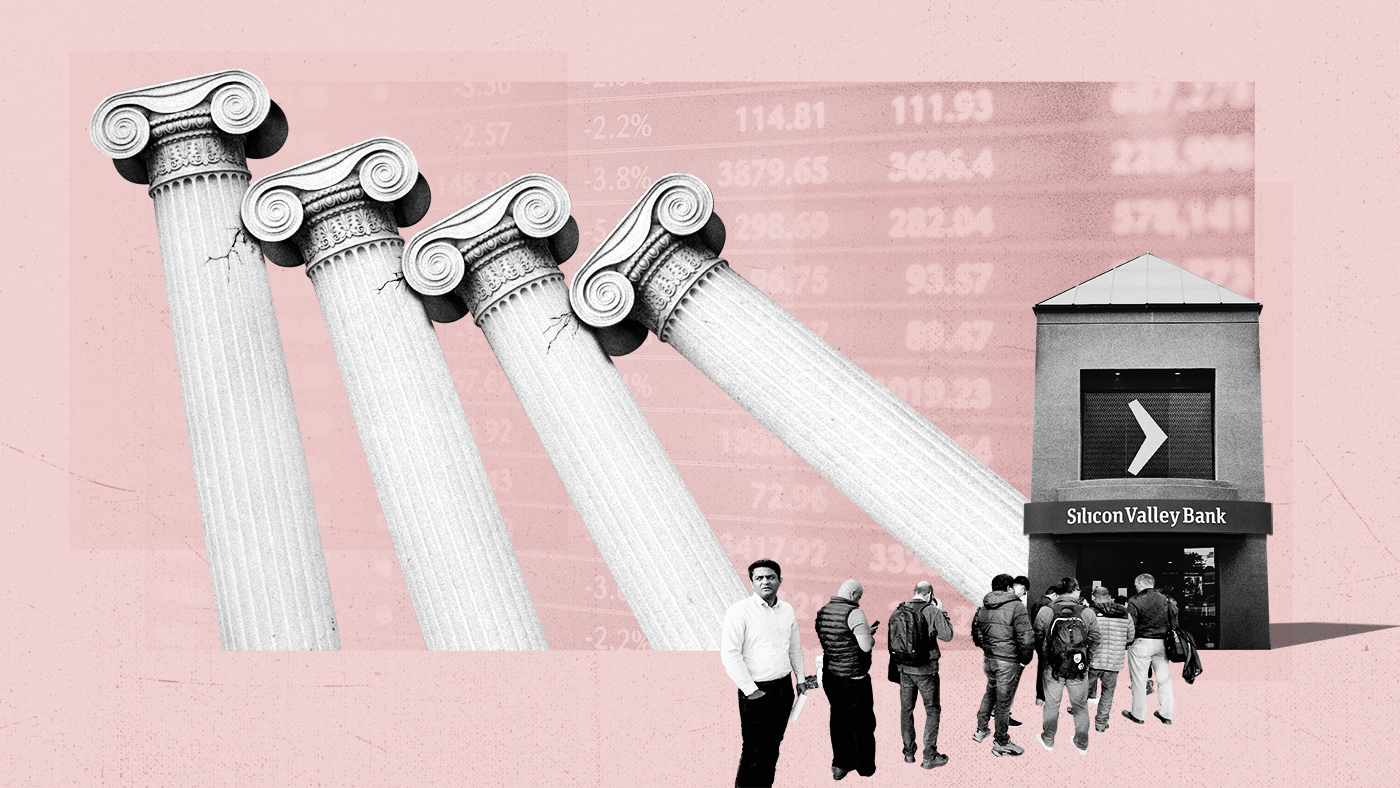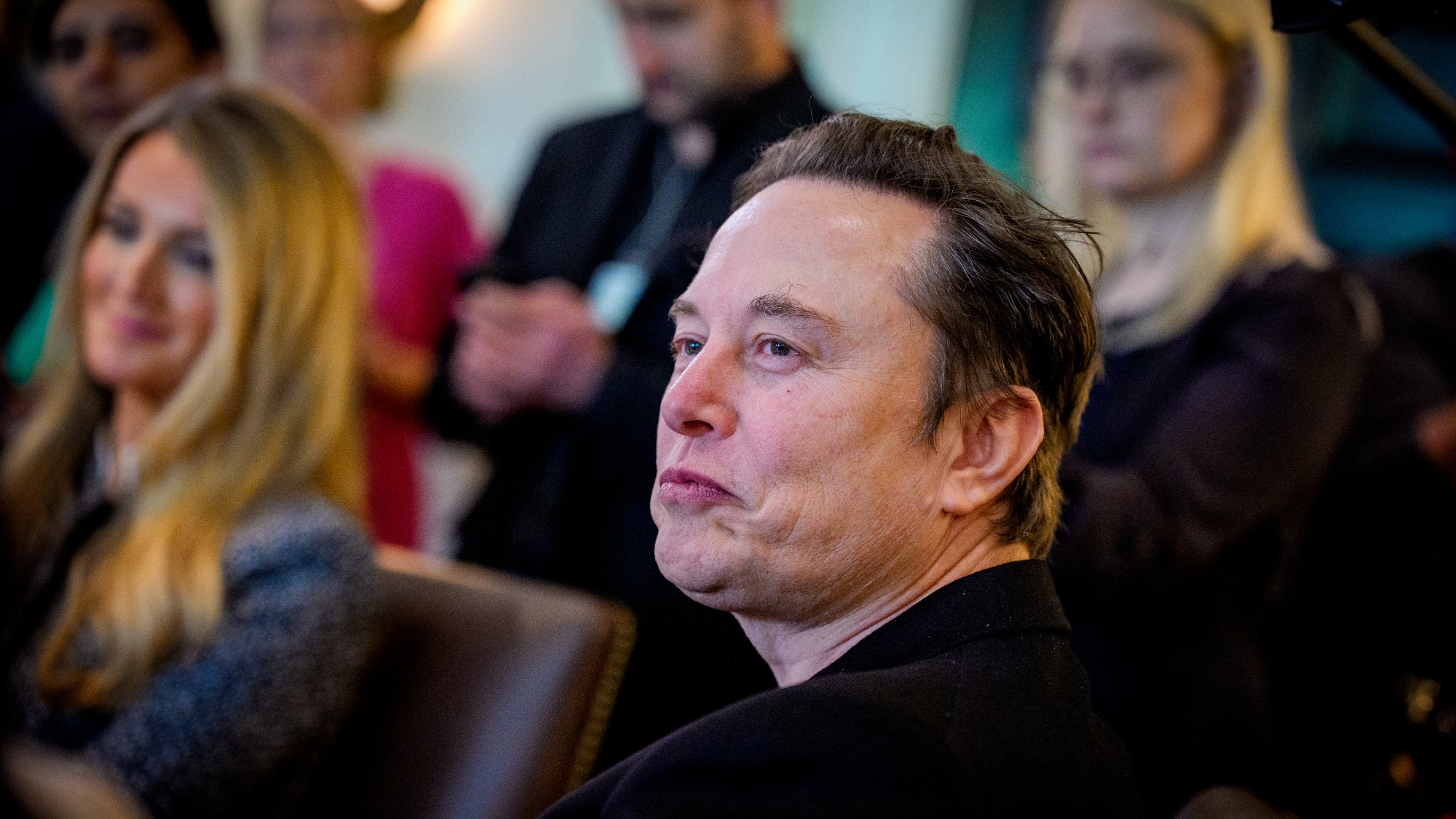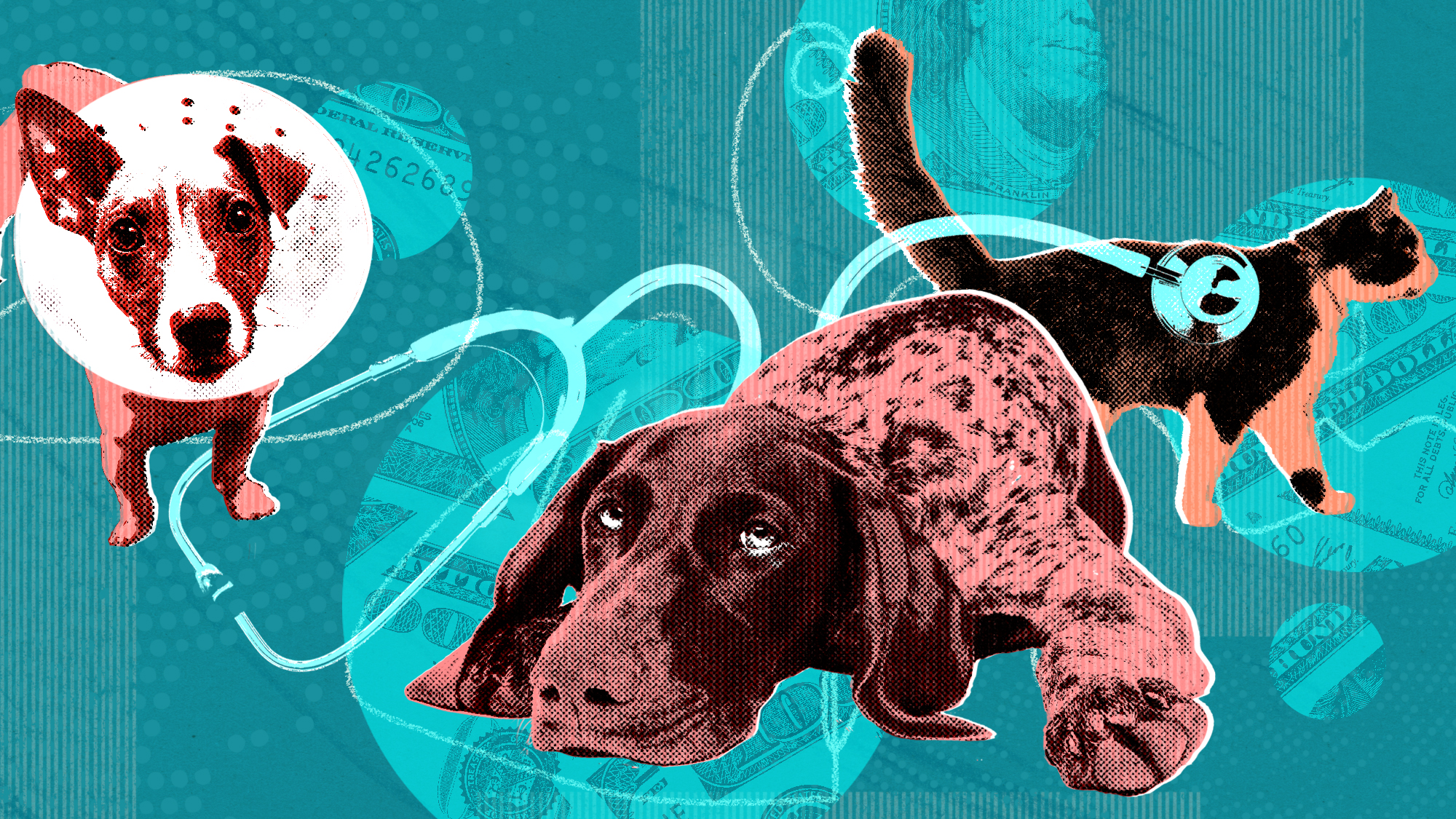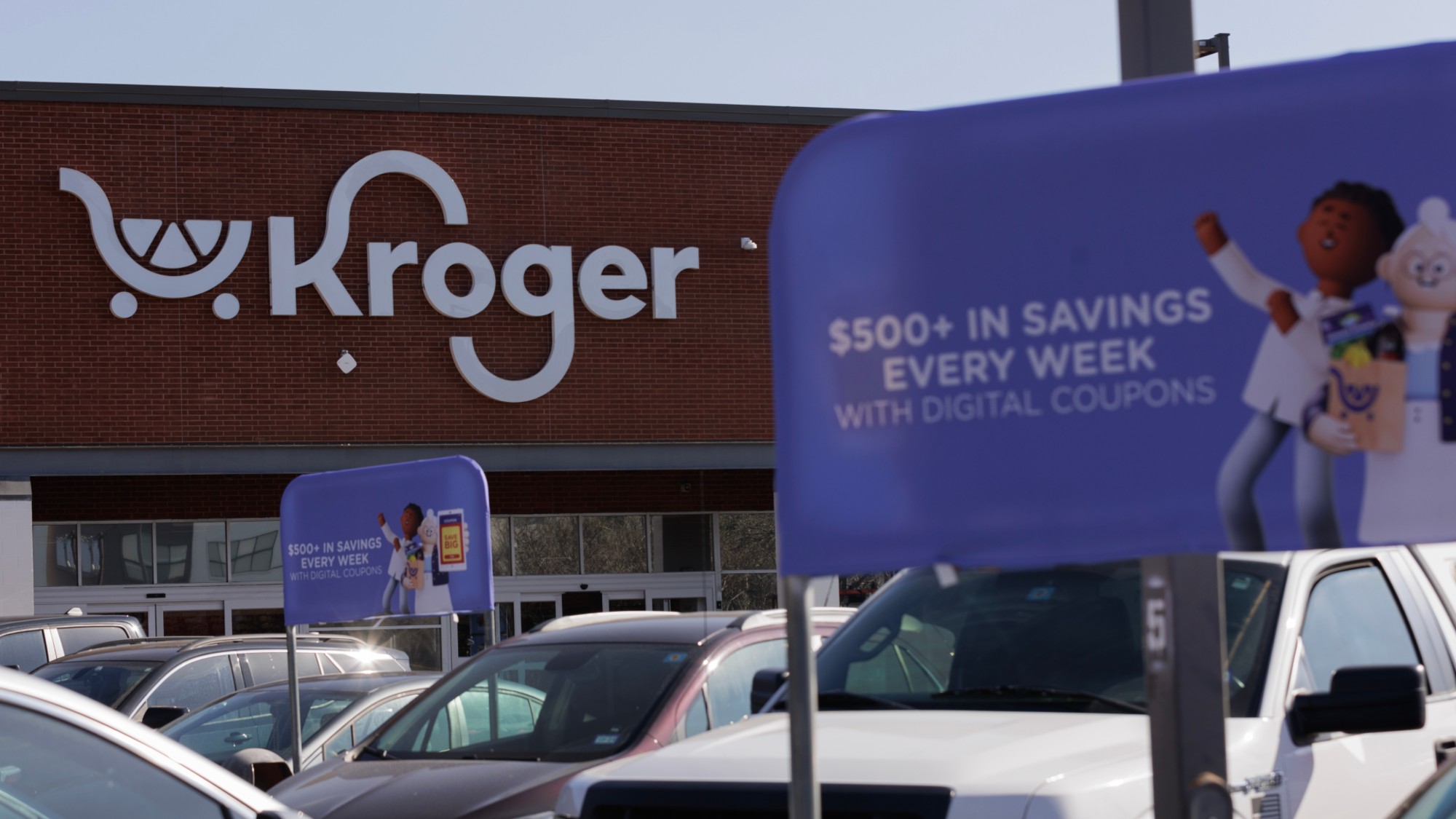Is the banking system in peril?
The Biden administration has taken extraordinary actions following the collapse of Silicon Valley Bank


A free daily email with the biggest news stories of the day – and the best features from TheWeek.com
You are now subscribed
Your newsletter sign-up was successful
The federal government is scrambling to restore confidence in the financial system following the collapse of Silicon Valley Bank, the second biggest failure of a federally insured bank in U.S. history. The lender, which had $209 billion in assets at the end of December, went under after news of its money troubles sparked a run on deposits last week. A second institution, Signature Bank of New York, which had significant cryptocurrency deposits, failed on Sunday, spreading anxiety about the health of the financial system.
The Treasury Department and the Federal Deposit Insurance Corporation stepped in, taking control of both banks and promising that the government would backstop depositors, ensuring that they'd be able to get their money — not just the $250,000 insured under federal law. Many tech startups deposited investments from venture capital firms at SVB, and the Biden administration said its extraordinary actions were intended not to protect bank shareholders, but to make sure tech employees would get paid and head off a wider "systemic" meltdown.
To shore up confidence in banks and prevent a broader financial crisis, regulators said SVB customers would have access to their accounts on Monday. They also established a system giving banks access to emergency funds, and the Federal Reserve made it easier for financial institutions to get emergency loans. The Biden administration also said a bigger bank would likely step in to buy SVB, providing long-term security for its customers. President Biden said taxpayers wouldn't shoulder any costs, and sought to reassure Americans, saying: "The banking system is safe."
The Week
Escape your echo chamber. Get the facts behind the news, plus analysis from multiple perspectives.

Sign up for The Week's Free Newsletters
From our morning news briefing to a weekly Good News Newsletter, get the best of The Week delivered directly to your inbox.
From our morning news briefing to a weekly Good News Newsletter, get the best of The Week delivered directly to your inbox.
What are the commentators saying?
SVB wasn't brought down by "lending to risky start-ups, or gambling on sketchy crypto coins, or some other ill-considered tech scheme," said Kevin Roose in The New York Times. "It was an old-fashioned bank run, set off back in 2021 by a series of old-fashioned bad decisions." A bunch of tech startups "parked" their cash in SVB, and the bank put a lot of the money into bonds. "Those investments looked relatively safe at the time but became riskier last year as interest rates rose and the bonds lost some of their value."
The crisis started when SVB announced last week it would lose $2 billion on the investments. "That's a lot for you or me or the state government, but just a small fraction" of SVB's deposits, said Joseph N. DiStefano in The Philadelphia Inquirer. The bank said it was prepared to "sell the bonds at a loss and replace the losses, as healthy companies do, by selling more shares, anticipating good times and high profits will return." But that wasn't enough to stem the panic. About $165 billion in Silicon Valley deposits weren't insured — mostly because it was in accounts holding millions more than the FDIC's $250,000 limit — and depositors rushed to withdraw what they could.
Taking government help is a bitter pill for an institution and industry "fond of railing against government intervention and lobbying against stricter regulatory oversight," said John Thornhill in the Financial Times, but this "pragmatic move" was necessary to protect thousands of "blameless" SVB customers, "many of whom would have seen their businesses go bust without a financial backstop." "The alternative was to risk the stability of the deposit system and inflict huge damage on the technology sector," said Chris Hughes in Bloomberg. Some critics are "lecturing" regulators about moral hazard, arguing that by saving the day the government is signaling banks can take risks without suffering the consequences. But the U.S. is only making customers whole. "There's no bailout for shareholders or bondholders — so those who consciously put capital at risk have paid the price" as the company's stock cratered.
What's next?
Congress and regulators will face pressure to intensify oversight of mid-sized lenders. The theory that banks with less than $250 billion of assets can't pose a threat to the financial system "has just been subjected to a real-life stress test and failed," said Aaron Back in The Wall Street Journal. "These lenders' case for a lighter regulatory touch is now dead, politically and substantively." It could take years for Congress to pass the kinds of "new laws that often follow bank crises." In the meantime, "regulators have many discretionary tools they can use to intensify oversight of midsize lenders."
A free daily email with the biggest news stories of the day – and the best features from TheWeek.com
Harold Maass is a contributing editor at The Week. He has been writing for The Week since the 2001 debut of the U.S. print edition and served as editor of TheWeek.com when it launched in 2008. Harold started his career as a newspaper reporter in South Florida and Haiti. He has previously worked for a variety of news outlets, including The Miami Herald, ABC News and Fox News, and for several years wrote a daily roundup of financial news for The Week and Yahoo Finance.
-
 Political cartoons for February 13
Political cartoons for February 13Cartoons Friday's political cartoons include rank hypocrisy, name-dropping Trump, and EPA repeals
-
 Palantir's growing influence in the British state
Palantir's growing influence in the British stateThe Explainer Despite winning a £240m MoD contract, the tech company’s links to Peter Mandelson and the UK’s over-reliance on US tech have caused widespread concern
-
 Quiz of The Week: 7 – 13 February
Quiz of The Week: 7 – 13 FebruaryQuiz Have you been paying attention to The Week’s news?
-
 Trump wants a weaker dollar, but economists aren’t so sure
Trump wants a weaker dollar, but economists aren’t so sureTalking Points A weaker dollar can make imports more expensive but also boost gold
-
 The longevity economy booms as people live longer
The longevity economy booms as people live longerThe Explainer The sector is projected to reach $27 trillion by 2030
-
 Texas is trying to become America’s next financial hub
Texas is trying to become America’s next financial hubIn the Spotlight The Lone Star State could soon have three major stock exchanges
-
 How could worsening consumer sentiment affect the economy?
How could worsening consumer sentiment affect the economy?Today’s Big Question Sentiment dropped this month to a near-record low
-
 Musk wins $1 trillion Tesla pay package
Musk wins $1 trillion Tesla pay packageSpeed Read The package would expand his stake in the company to 25%
-
 From candy to costumes, inflation is spooking consumers on Halloween this year
From candy to costumes, inflation is spooking consumers on Halloween this yearIn the Spotlight Both candy and costumes have jumped significantly in price
-
 Rising costs are making it harder for people to afford pets
Rising costs are making it harder for people to afford petsUnder the Radar Shelters are filling up as a result
-
 Grocery stores under fire for overcharging during cost-of-living crisis
Grocery stores under fire for overcharging during cost-of-living crisisThe Explainer A recent investigation has put the spotlight on Kroger, but it is not the only chain being pinpointed
